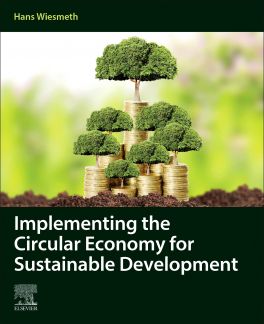Description
Implementing the Circular Economy for Sustainable Development presents the concept of the circular economy with the goal of understanding its present status and how to better implement it, particularly through environmental policies. It first tackles the definition of a circular economy in the context of sustainability and the differences in defining the concept across disciplines, including its fallibilities and practical examples. It then goes on to discuss the implementation of a circular economy, including the increasing variety of technological, mechanical, and chemical procedures to contend with and the need for stakeholder support in addition to improved business models.
The second half of the book, therefore, presents tools, approaches, and practical examples of how to shape environmental policy to successfully implement a circular economy. It analyzes deficiencies of current regulations and lays the groundwork for the design of integrated environmental policies for a circular economy.
Authored by an expert in environmental economics with decades of experience, Implementing the Circular Economy for Sustainable Development is a timely, practical guide for sustainability researchers and policymakers alike to move more efficiently toward a circular economy and sustainable development.
- Presents a clear view of the critical components, features, and issues of a circular economy
- Discusses a variety of practical examples from current policies in the context of a circular economy to better understand the challenges associated with its implementation
- Analyzes strengths and weaknesses of current environmental policies and their interactions with innovations in engineering and science

